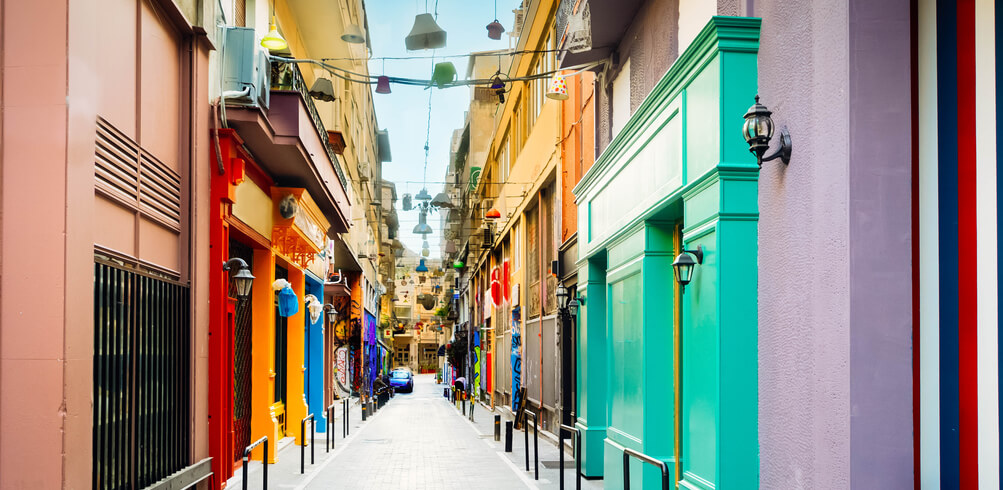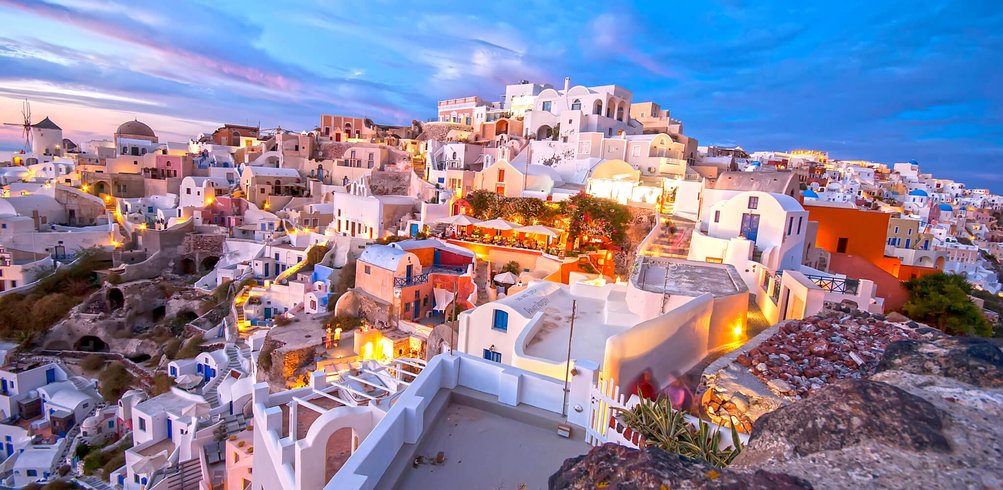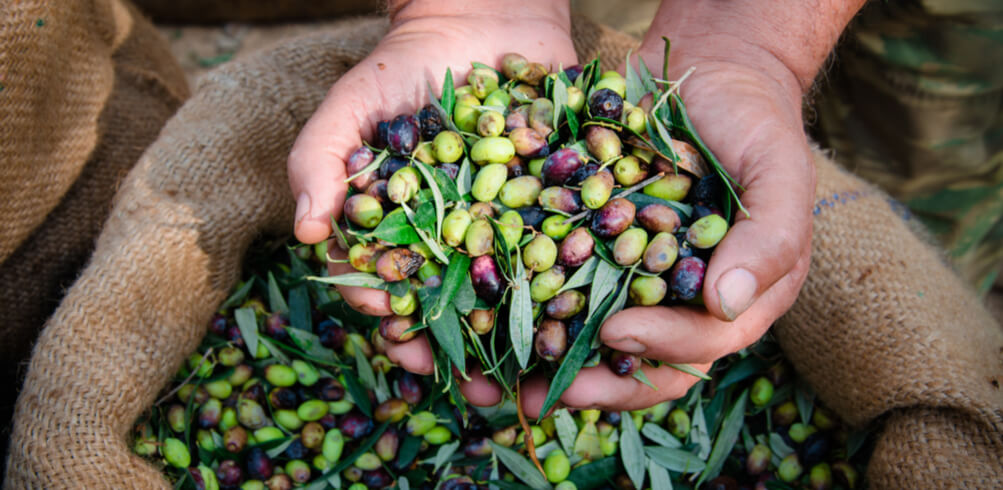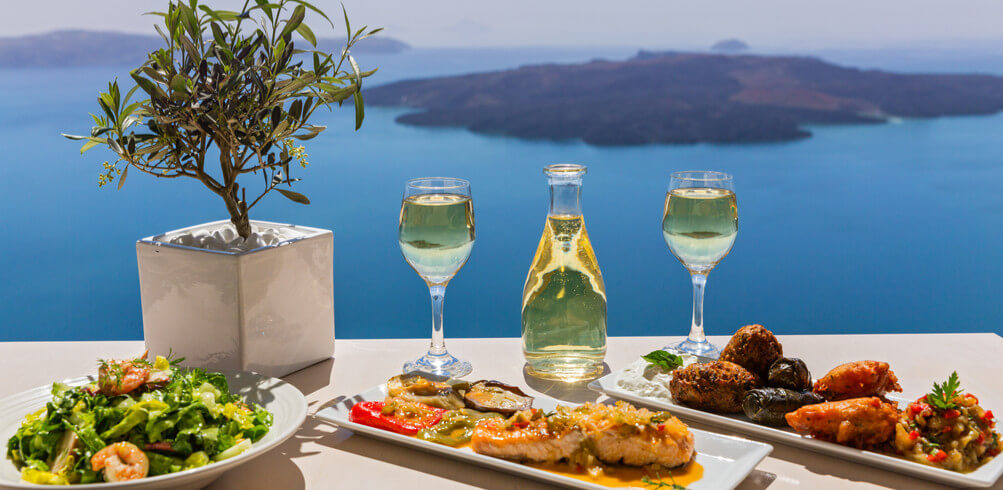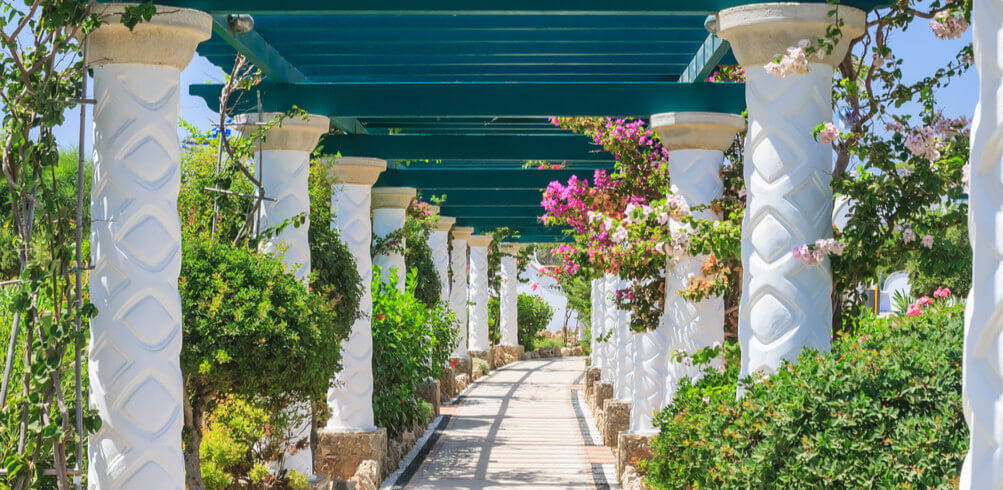A land of ancient mythology and archaeological wonder, Greece is undoubtedly one of the most influential countries in the world. With an astoundingly long list of famous figures such as Homer, Aristotle and Alexander the Great, and a profound impact on all facets of modern society, it’s clear how the country came to be known as the Cradle of Democracy. Today, Greece lures travellers with its exotic landscape, beautiful islands and lively culture. Explore our tours of Greece and experience the history, beauty and spirit of this remarkable destination.
For foodies, Greek cuisine is a mouthwatering showcase of Mediterranean produce, while beach lovers can bathe in the Aegean’s crystalline waters and bake on its golden sand. From the streets of historic Athens to the peak of Mount Olympus and across to the white-washed buildings of Mykonos, every corner of Greece radiates charm and tradition. Click here to learn more about when is the best time to visit Greece.
Our tour packages to Greece include Classic tours, Small Group tours, Partially Escorted cruises, Independent tours, and Tailor-Made tours. Depending on your pace and travel style, you can choose from leisurely island-hopping adventures, in-depth cultural journeys, or a mix of both. Some tours also combine Greece with neighbouring countries like Turkey, Croatia, and Italy.
Yes, solo travellers are welcome on all our group tours of Greece. Some itineraries offer a Shared Solo Option, where we can match you with another solo traveller of the same gender. If you’d prefer your own space, single supplements are available across most of our Greece tours. Just check the individual tour details or get in touch to discuss your options.
Many travellers choose to arrive early or stay longer to soak up more of Greece’s charm. Depending on your tour, we may be able to help you organise additional nights before or after your guided tour to Greece, or assist with pairing two tours together. Talk to our team when booking to tailor your itinerary, or explore the add-on options in your dedicated Traveller Hub.
Some packages include flights, while others only include the land-only tour component. You can filter for your preference while browsing our Greece tour packages. If you book a land-only tour, our team can help arrange international flights upon request, or explore the available options in your Traveller Hub post booking.
Packing for Greece depends on the time of year and your itinerary, but some basics go a long way. Essentials include:
Greece has a Mediterranean climate, which means long, dry summers and mild, wet winters. Here's what to expect seasonally:
Spring (Mar-May): 15–24°C. Great for sightseeing, with fewer crowds and blooming landscapes.
Summer (Jun-Aug): 25–35°C. Hot and dry—perfect for beaches and cruising, but busy in tourist hotspots.
Autumn (Sep-Nov): 18–28°C. Warm seas, golden light, and fewer tourists make this a favourite for many.
Winter (Dec-Feb): 5–15°C. Cooler, especially in northern regions, with fewer crowds and lower prices.
Greek cuisine is fresh, simple, and incredibly flavourful. Expect olive oil-drenched salads, slow-cooked meats, grilled seafood, and flaky pastries. A few must-try dishes include:
Food is a big part of Greek culture—don't be surprised if meals are long and social. If you’re a bit of a foodie, dive into our article, 10 must-try foods in Greece.
The Acropolis is one of Greece’s most iconic heritage sites, and there are a few important things to keep in mind:
Greek culture is rooted in hospitality and tradition. Here are a few tips to help you connect with locals:
Tipping isn’t mandatory in Greece, but it is appreciated, especially for good service. Here's a general guide:
Tipping in cash is preferred. Carry small change to make it easy.
Coffee is an essential part of Greek daily life, and should be enjoyed slowly, sometimes lasting the whole day (in a takeaway cup, of course). You'll find a range of styles worth trying:
Order your coffee with ‘skétos’ (no sugar), ‘métrios’ (½ sugar) or ‘glikós’ (sweet), depending on your taste,
Cafés are everywhere, from modern espresso bars to traditional kafeneia—and you’ll quickly see just how central coffee is to Greek culture.
Yes, Greece is generally safe for travellers, but like any destination, it’s wise to take standard precautions:
Beyond the classic postcards and fridge magnets, Greece offers some standout souvenirs:
Tap water in Greece is safe to drink in most mainland cities such as Athens and Thessaloniki. However, on many of the Greek islands, including Santorini and Mykonos, the tap water may not be potable or is high in minerals, making it less suitable for drinking. Locals and travellers typically opt for bottled water, usually 0.50€ and widely available. Many hotels will supply bottled water in your room, and it’s a good idea to keep a reusable bottle with you for day trips.
Yes, many of the hotels used on our tours of Greece offer laundry services for an additional fee. If your itinerary includes a longer stay in a single location, it’s a great opportunity to refresh your wardrobe mid-trip. For shorter tours or more fast-paced itineraries, you may want to bring some travel-friendly detergent to do a quick wash in your room, especially if you're packing light. Always check with your hotel reception for laundry turnaround times, as they can vary.
English is widely spoken in most tourist areas, including Athens, Santorini, and other popular destinations. Hotel staff, tour guides, restaurant servers, and shop owners generally have a good command of English. That said, learning a few local phrases goes a long way, especially in smaller towns and villages. It shows appreciation for the culture and often earns you a warmer welcome.
Here are a few helpful Greek phrases to know:
Greece is part of the Schengen Area. Visa requirements may vary depending on your nationality and travel route. Be sure to review our Visa Entry Requirements page after booking your tour. Transit visas may also be needed, depending on your flights.
Getting started is easy. You can browse our Greece tours online for detailed itineraries, tour styles, and inclusions. Once you’ve found a tour that matches your travel style and schedule, you can book directly through our website. Prefer to chat it through? Give our Inspiring Vacations team a call on 1300 88 66 88. We're here to help you find the right fit, whether you're chasing sun-drenched islands or ancient ruins.
Ancient monuments, classic architecture, world-class museums and cutting-edge artists: welcome to Greece Culture abounds in the Greek capital, where the legacy of ancient civilisations is in contrast with a visual arts scene that is one of the most talked about in Europe. The ongoing regeneration of Athens has meant im...
Get lost in nature and history or go on an adventure – there’s something for everyone across these unique destinations Whether you love dancing the night away, exploring little villages, or discovering long-forgotten ancient ruins, there’s a Greek island to suit you, all with a charm of its own. 1. Santorini A uniq...
Look no further for a brief course – and three courses – in Greece’s sumptuous cuisine History-rich Greece bathes in the sunshine and the blue Mediterranean which means one thing: great food! Here, 10 traditional foods to try on your Greek adventure. 1. Feta The most famous cheese that Greece produces, feta, can be mad...
Santorini is world-famous for its vistas, but look hard enough and you’ll discover its Greek food is second-to-none With its simple yet perfectly balanced Mediterranean flavours and emphasis on fresh produce, a trip to Greece is as much about the food as it is about the sights. Santorini, Greece’s most visited island...
As one of the world’s most historically influential countries, Greece's mythology and archaeology is legendary. But, when is the best time to go? Greece is blessed with one-of-a-kind natural beauty, and topped off with some of man's greatest inventions. Foodies and architectural enthusiasts are well catered for in thi...
